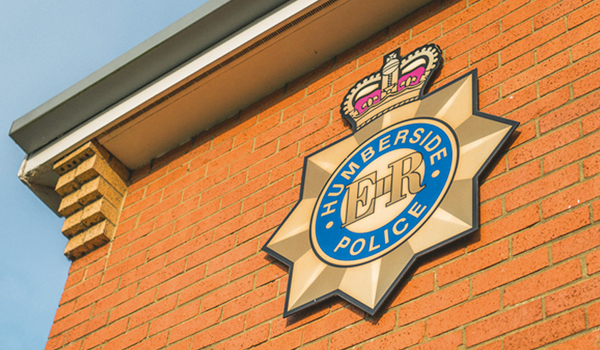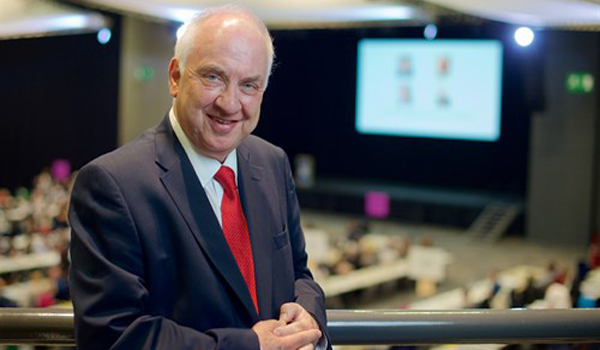New generation of young British men driving demand for child sex abuse videos and images
The National Police Chiefs’ Council lead on child protection has warned that more and more young British men aged 18 to 26 are viewing images and videos of children suffering sexual abuse on the internet.
Chief Constable Simon Bailey says this is fuelling the demand for online child sex abuse in the UK and fears it will only get worse.
Speaking on a groundbreaking new podcast series commissioned by The Internet Watch Foundation (IWF), Mr Bailey said the UK is now the third biggest consumer of live-streamed child sexual abuse in the world.
Launched on Easter Monday (April 13), the podcast – ‘Pixels from a Crime Scene’ – warns that the face of online predators is changing, and that more people need to be aware of the risks posed by a new generation of criminals.
The IWF, the UK-based charity responsible for finding and removing online child sexual abuse material, says the podcast series brings together global experts, victims, industry leaders, and even criminals, for the first time to explore how children are being exploited by online predators who share images and videos of their sexual abuse on the internet.
The series release date was brought forward due to the Covid-19 crisis and fears that children and predators alike will be spending more time on the internet. The IWF’s chief executive Susie Hargreaves said it is time “now, more than ever” for people to really understand the threats online, and what’s being done about it.
In the first episode, titled ‘There’s no such thing as child pornography’, Mr Bailey warns: “We now look at the UK being the third biggest consumer of online child sexual abuse where they are directing the abuse of a child in the Philippines.
“We look at the referrals that organisations like the Lucy Faithfull Foundation are getting; I think those figures are conservative and, worryingly, we are now seeing the emergence of a new group of offenders. We have historically talked about those men who are predisposed to have a sexual interest in children. That group obviously still exists, but what we are now seeing is a group of young men who are aged between 18 and 26.”
Mr Bailey said these offenders “start to explore what child abuse imagery might look like, and they start to get their kicks from that”, adding: “And the fact is that I fear will only get worse.”
Ms Hargreaves said watching child sexual abuse material was not a victimless crime, and that people who may not consider themselves criminals by watching this material are, in fact, causing “pain and suffering” to children.
“This series was commissioned to help people find out about the unthinkable,” she added. “Child sexual abuse is a real, everyday, occurrence for too many children and given the Covid-19 crisis we’re in and the concerns that countless organisations have expressed about the safety of children, now, more than ever, we need to face up to it.
“People have this idea of an online predator as being older, isolated, slightly creepy, but offenders can be anyone, anywhere. We need people to come to terms with the fact that offenders come in all shapes and sizes, and that people who may not see themselves as criminals could well be causing tremendous pain and suffering to innocent children.
“Pixels from a Crime Scene has brought together many global experts, industry leaders, as well as survivors and offenders to take a balanced look at the issues. The series also offers people avenues for help and it collates ideas as to how we can get better as a society at tackling this.”
Less than one per cent of all the world’s known child sexual abuse imagery is hosted in the UK thanks, in part, to the IWF’s work to crack down on criminal content. Despite this, there remains a large demand in the UK for content, with offenders viewing images that are being hosted on websites outside the UK.
Earlier this month, The National Crime Agency revealed it believes there were a minimum of 300,000 individuals in the UK posing a sexual threat to children, either through physical ‘contact’ abuse or online.
Mr Bailey said: “The challenge is getting worse, and it’s getting bigger, and we have got to start being very honest about this; we have got to start debating this more in public, no matter how horrible as a subject it might be to talk about.”
The first episode of Pixels from a Crime Scene is available to download at www.iwf.org.uk/pixels-from-a-crime-scene or on Spotify, Stitcher and TuneIn.
The IWF says the series will explore “how children are targeted by pernicious criminals online”, and how their abuse is spread all over the world. It will introduce listeners to the victims, the experts, and even the criminals involved, and will set out how to make the internet safer for everyone.







